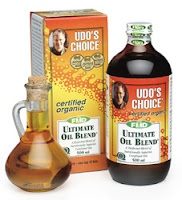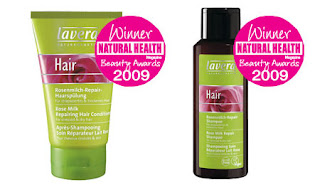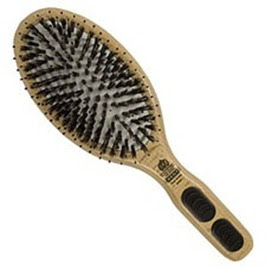I am an avid YouTube beautyvid watcher and one thing that annoys me is that most of them tend to give myths about this subject new life. I have no illusions of grandeur and I don't really think that throngs of people will rush to read this blog post, but I'm hoping that a few will and hopefully share the tips to follow. I'm no expert, but I do work in the health foods industry and have gone through some training for that and I'm armed with a fair amount of scepticism and very realistic views. Also one of my brothers was a hairdresser for many years so he's tought me alot and shared a few things with me that he wouldn't say to a client in a salon.
I've coloured and trimmed my own hair for too many years than I care to remember and done alot of googling and youtubing and reading to educate myself. I would also like to say that although I'll be mentioning a few brand names and such in this post, I'm not trying to sell anything and I'm not sponsored in any way.
I finally decided on this topic because a colleague of mine, who I might see every three weeks or so, commented that my hair was in such good condition and that it had grown alot since the last time she saw me. Soooo this is me sharing the "tricks" that I swear by. To be fair they are just facts that I've come to realise over the years :) I hope that you have the patience to read the entire thing because I think you'll be surprised at some of the stuff I have to share with you, so please bare with me here.
1. Getting a haircut every six weeks won't make your hair grow any faster. I've actually heard people say this and it shocks me that someone might think that. How would that work? Would the hair folicle in your scalp suddenly realise that it has had a snip and jolt into a growth spurt? No. Just no. However, if your hair is very fine and the ends are visibly split and frizzy, have it cut. If you bleach your hair or dye it very often, you might want to have it trimmed every 2-3 months, but there is no hard and fast rule for this.
2. There is
NO way to nourish the lenghts of your hair. Your hair is completely dead below the root, as in there are no living cells in it to nourish or make stronger. Once the damage is done the only thing to do is cut it off. Forget all the ads for shampoo, conditioner and hair treatments that claim to fix all your problems - all lies! Keep in mind that their sole mission is to make you buy their products. The only way to nourish your hair is to do so from within. Start off with vitamin B supplements or Brewers Yeast. Amongst other great health benefits, they also strengthen your hair, skin and nails. In most cases they help your hair grow faster and also makes it grow back thicker and stronger after the hair strands finish their growth cycle. Taking a good quality multivitamin and fatty acids (like Omega3. Udo's Choice is my fave!) is also very important, actually it is essential if we look at it from a purely aesthetic point of view. Fatty acids will also make any other supplements you're taking even more effective. All these things will strengthen your cells and lubricate your skin and hair from the inside. Healthy on the inside = healthy on the outside. Oh, and of course
DRINK LOADS OF WATER.
3. Be kind to your hair. Try to use hot tools as rarely as possible. I love my GHDs, but they dry my hair out so badly. Personally, I hardly ever even blowdry my hair anymore and when I do I set it to the lowest heat setting.
4. Switch to organic or all-natural and SLS-free shampoos and non-silicone conditioners. All shampoos contain a chemical called sodium laureth sulfate or sodium lauryl sulfate (or SLES and SLS) aka the devil. Just stay away from any sulfate because there are a few other variations. This is true for all brands from Wella to Sebastian or Toni&Guy, in other words even the most expensive salon products these are listed amongst the first few ingredients. What is this stuff, you might ask? Well here we go; it's found in shampoos, soaps, cleansers, toothpaste and detergents and basically it's the stuff that makes products foam up or lather. These are highly irritating chemicals and can lead to direct damage of the hair follicle and skin.
Shampoos are actually among the most frequently reported products to the FDA and the reports include eye irritation, scalp irritation, tangled hair, swelling of the hands, face and arms and split and fuzzy hair. So why do they use it? Well, it's cheap. They use the same type of SLS to de-grease engines and clean floors. In the same way SLS dissolves grease from engines, it dissolves the oils in your skin, drying it out in the process and obviously dries out your hair as well. A damaged scalp won't hold the hair for as long as it could and dry hair breaks off and the ends will split. Because of the stripping effects of SLS, it will absolutely drain colour out of your hair if you dye it. I've experienced this first hand because I have a very high-maintenance hair colour and whereas I had to dye my hair every three weeks or so before, it now stays really vibrant and even for about a month and a half.
Honestly, this stuff is generally bad for you because your skin absorbs it and in the body it behaves like the hormone oestrogen and is a factor in breast cancer and hormone disorders. The liver can't metabolise the stuff so effects are much longer lasting. Scary right??
I mentioned silicone-free conditioners as well, so I'll touch on that now. All conditioners claim to make your hair smooth and sleek, and that's no lie.
BUT the effects are temporary and will only last until the next time you shampoo. If you read the ingredients listed on the bottle you'll see names like dimethicone and probably lots of other word ending with -cone. These are all different types of silicone. They fill in the gaps in the hair shaft to make brushing easier etc, but they build up on your hair and are the reason why your hair feels greasy after just a couple of days. And what do you do? You wash your hair more often, drying it out even more. And of course SLS is the only thing that will remove the silicone from the hair! Now, silicones are especially bad for coloured hair because they will melt and clog the shaft completely if you also use hot tools. This means that the dye will not be able to penetrate the hair properly giving you an uneven result and causing it to fade MUCH faster.
If you decide to try this, stick with it for a few weeks. You will feel like you hair isn't as clean as it used to be and it won't feel as smooth after conditioning, but it's just the transition. I promise! Your hair is used to harsh chemicals and it takes a while for the scalp to adapt. When I switched I was committed to stick with it and after a couple of weeks my hair was in amazing condition. After a while you'll also notice that you won't need to wash it as often which is all the better for your hair. However, before you throw out your old shampoo you will need to use a few more times to make sure that all the silicone that's built up is completely gone. Just apply the silicone-free conditioner afterwards if you find that it frizzes very badly. You can also massage a bit of olive oil through toweldried hair if you'd like :)
Wow, that was a long one. I'm sorry but this one was really important, I'll try to keep it short from now on. Last one is next!
5. On to brushing of the hair. We've all heard that people would brush their hair 100 times before bed in the good old days. Turns out they were on to something. Brushing distributes oil from your scalp to the rest of your hair and will naturally condition it and stop the ends from splitting, hence healthier looking hair :) The best brushes for this are the ones with natural bristles because they're more dense and do a better job of grabbing the oils to move them down the hair shaft.
That's it. If you've stuck with me till now, well done! I feel like I was lecturing you a bit at one point there and I do apologise, but at least I've been specific :) The products pictured are all products that I use and love, and I would recommend them to anyone! I've linked to the official websites, but the shampoos and conditioners are available from other websites like
iherb.com If you have any questions just leave me a comment







